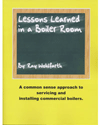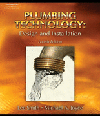Lake Ronkonkoma. How’s that for aNativeAmerican name?
Sort of rolls off your tongue, doesn’t it? To get my mother, my big brother and me out of Manhattan and into the country for a while, my father would drive the 60 or so miles from Manhattan to Lake Ronkonkoma, which used to be quite lovely. Private beaches ringed the lake, many with pavilions that stretched out over the water on pilings. Tall slides that had hand pumps at their tops to take the blaze off the summer steel stretched out into the deeper water. We’d climb, pump, slide and shriek into the warm lake. We’d be out there on our own while our parents drank beer and watched us from a wooden picnic table up on the pavilion.
Each summer, we would spend a week at Quick’s Motel, an old-school place across the street from the lake. Mrs. Quick kept goats and a dog named Flea. One day, my father went out for a drive and when he returned he told us he had just bought a plot of land with the shell of a bungalow on it for $2,500.He had to put $25 down to hold it. He was now a homeowner, which was his American Dream. And he was going to finish that bungalow for us. It would be our summer place. Your uncle and I danced the Dance of Joy.
Now, this is how he finished that tiny house. He was working for a plumbing and heating supply house in New York City back then. The place was on East 79th St., directly across from our apartment building. There’s a high-priced condo there now. He was the shipping clerk and in those years after World War II there was all that building going on. My father ran a couple dozen trucks that made deliveries all over the city and out onto Long Island. He told each of his drivers that when they made a delivery, they should ask the foreman if they could please have one 2 x 4 and one brick. “No one will ever refuse if you ask for a little,” he said to me. “And a little adds up to a lot after a while.”
On Friday, one truck always made a run out east to deliver to the tract housing that was sprouting like weeds all over Long Island. My father would load his free wood and bricks onto that truck and his driver would dump that load on his lot. He finished that house and built even more before he was done. And that house is still standing.
At first, the place had no indoor plumbing or running water. He dug a hole and built an outhouse. He had a shallow well dug and connected a hand pump to that. He built an 8-ft.-high frame out of his free wood, mounted a steel drum on top of the frame, painted it black and screwed a chain-operated shower head into its bottom. He told us that this is how he and the other soldiers had showered in the Philippines. Each morning, he would pump buckets of water, climb the ladder and dump the water into the steel drum. By evening that water was almost too hot to bear.
This was my first exposure to solar thermal. I was four years old.
Charging ahead
That same summer, Hurricane Carol visited Long Island and dropped a huge oak tree on the bungalow. I remember us driving out there to see the damage. It was like being inside a tree house. I loved it. My father and the neighbors got together and cut up the tree. They didn’t have any power tools. Did it all by hand. They saved the wood and burned it during the summers to come. There was some beer involved in that, of course, and I remember helping him bury all the steel cans every the morning.
He added an electric pump to the well in 1956 and piped cold water into the house. No more hand-pumping for him and with the new water heater our days of solar-thermal showers were over.
He got some Slant/Fin baseboard and a bronze-body B&G Series 100 circulator from the supply house and ran a heating loop from the water heater. This did a nice job of keeping the place cozy during the fall and spring.
It dawns on me now that he was probably setting us all up for a dose of Legionnaires’ disease with that open system he had built. The domestic water that ran through the baseboard stagnated all summer long, but no one knew of Legionella bacteria back then and we survived. And had I gotten that disease, my father would have told me suck it up. Whenever I was ill, he’d say: “Stop whining. You’re either going to live or die. If you live, no problem. If you die, it’s my problem because I’ll have to bury you.”
The Irish.
Hydronic beginnings
In 1957, he decided to get us out of Manhattan for good. The Long Island Expressway was working its way out onto the island, and each weekend he and my mother would pile us into the old Buick to go look at houses. We kept moving eastward from exit to exit until we got to the town of Hicksville where they could afford to buy a house. He had sold the bungalow in Lake Ronkonkoma to get the down payment on the Hicksville house.
Hicksville was a funny name for a town. Valentine Hicks had founded it along with the Long Island Railroad. It wasn’t really “hicky,” although the roads were made of tar and covered with pebbles. There were no sidewalks or curbs. During the summers, we’d pry the tar from the road in front of our house with a stick and smear it onto our PF Flyers. Then we’d go walk inside the house.
And to keep down the dust, the town would send a truck rattling through the neighborhood every week to dribble oil onto all the streets. What today would be an environmental disaster was then simply road maintenance. We also tracked that into the house.
Oh, and asbestos was still the miracle mineral. And mercury was in our toys. Lead as well. Who knew?
The Hicksville house had a basement and that’s where the boiler was. A loop of copper wrapped around the basement ceiling and branches fed the upstairs steel convectors though diverter tees.
I became reacquainted with the Bell & Gossett Series 100 circulator at seven years old. During my rep days I would sell a lot of those circulators, but the summer of my seventh year had me sticking pencils into the spinning spring coupler. I loved the sound that made. It sounded like the Topps baseball cards I would clothespin in front of my bicycle spokes. RRRRRRRR! I also loved the way it chewed up the pencil. We had oil heat and service that was free as long as we were buying oil. The serviceman replaced a lot of couplers and probably had bad thoughts about that big red circulator. Sorry B & G.
I also loved (but didn’t understand) the boiler’s barometric damper. I thought it was a cool place to drop my father’s plastic-handled tools, for which I now offer a much-over apology to the serviceman. But like that boiler, he’s probably no longer in service.
Oh, and I also loved to pop the relief valve. It made such a cool sound.
The other cool thing about growing up in Hicksville (besides going to school with Billy Joel) was that everyone we knew had hydronic heat. I don’t think I ever went into a house with a furnace. It was boilers all the way and mainly steel convectors up in the rooms. Baseboard followed as people renovated their houses and added zones.
I thought everyone in the world had hydronic heat. I was wrong about that, but I still think we were the luckiest people in the world. We were all dreamers back then.
I should have kept my hands in my pockets, though.









